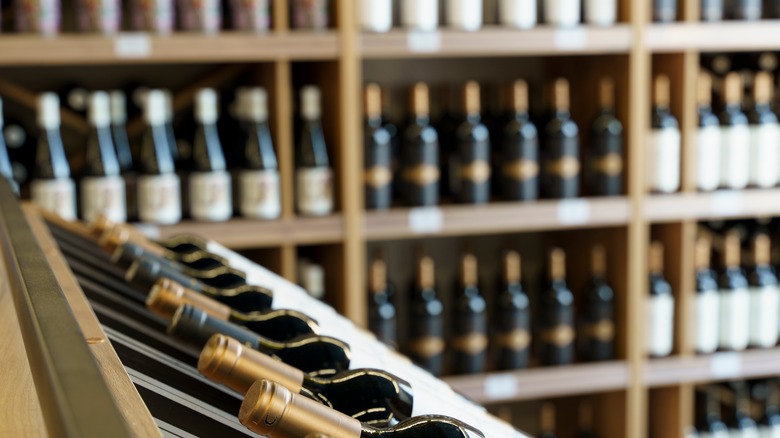Why France Is Spending Over $200 Million To Destroy Wine
In an effort to prop up the struggling wine industry, France has just announced that it will dedicate $200 million to winemakers who will be required to collectively destroy their product. This is up from the nearly $173 million that had been previously allocated for the elimination of roughly 250 million liters. The news of this budget increase was announced Friday by Marc Fesneau, France's Minister of Agriculture.
The need for government support stems from the financial hardship facing France's wine industry, particularly vineyards based out of Bordeaux, which have not anticipated the decline in consumer demand resulting from a variety of economic factors. The pandemic is one such factor but France's alcohol consumption as a whole has steadily been declining since the 1960s, when the government began implementing social campaigns warning about the negative health effects of alcohol consumption. The rise of single-parent households and a decrease in consumption of red meat, which red wine is often paired with, are also elements to consider.
The future of France's wine industry
While the French government is willing to step in to support the struggling winemakers, it isn't interested in becoming a crutch for the wine industry to lean on indefinitely. Currently, domestic demand for red wine is half of what it was in the 1990s, even while the demand for beer and rosé has increased. Although the pandemic is attributed as a cause, the National Institute on Alcohol Abuse and Alcoholism revealed that demand for alcohol increased by over 17% in 2020. Within that enormous increase, demand for wine rose less than 1%. The suppliers of red wine have not adequately responded to these changes.
As consumer behavior shifts away from wine and towards beer and spirits, the French government has requested that the winemakers adapt their production to the changes in demand to avoid this type of situation in the future. Money has been allocated to persuade vineyards to begin growing olives and over 23,000 acres of grape vines in Bordeaux are set to be destroyed and repurposed.
When thinking about this expenditure as a larger project to reorient the French wine industry, it becomes clear that the money is not the solution but instead a tiny bit of aid to keep winemakers afloat for a couple of months at most. But with the addition of reducing the amount of grapes being produced, there is a sense of long-term thinking. It remains to be seen whether their efforts will ultimately solve the problem but vineyards seem hopeful.

